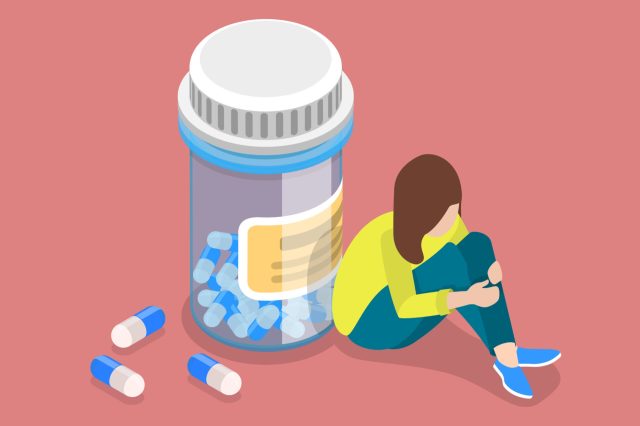Course Summary
Practice Level: Intermediate
Co-occurring bipolar disorder and substance use disorder pose a serious health risk to affected individuals. Patients with dual diagnoses may experience substantial challenges during treatment for their mental illness and recovery from substance use. Early diagnosis and intervention can significantly improve the potential outcomes for patients with a dual diagnosis. The changes made in this area within the Diagnostic and Statistical Manual of Mental Disorders guide health clinicians managing bipolar disorder complicated by a substance use disorder to lower the health risks throughout the age spectrum.
Course Format
This course contains downloadable online lessons (PDF) and a practice test. When you’re ready, purchase the course by clicking the “Add To Cart” button. This will let you take the test, complete the course evaluation and receive your certificate for CE credits.
Learning Objectives
- Identify the common demographics of individuals with a combined bipolar disorder and substance use diagnosis.
- Describe the phases of bipolar disorder.
- Discuss the role of alcohol and drugs in triggering bipolar phases.
- Explain treatment options for individuals with dual diagnoses.
Course Syllabus
- Introduction
- DSM-V Criteria To Diagnose Substance Use And Addiction
- Bipolar Disorder Classifications
- Causes of Bipolar Disorder And Demographics
- Phases Of Bipolar Disorder
- Relationship Between Bipolar Disorder And Substance Use
- Impact Of Bipolar Disorder On Substance Use And Addiction Treatment
- Developing A Treatment Plan
- Summary
Authors
Dana Bartlett, BSN, MSN, MA, CSPI
Dana Bartlett is a professional nurse and author. His clinical experience includes 16 years of ICU and ER experience and over 20 years of as a poison control center information specialist. Dana has published numerous CE and journal articles, written NCLEX material, written textbook chapters, and done editing and reviewing for publishers such as Elsevier, Lippincott, and Thieme. He has written widely on the subject of toxicology and was recently named a contributing editor, toxicology section, for Critical Care Nurse journal. He is currently employed at the Connecticut Poison Control Center and is actively involved in lecturing and mentoring nurses, emergency medical residents and pharmacy students.
Accreditation Approval Statements
CE4Less.com is approved by the American Psychological Association to sponsor continuing education for psychologists. CE4Less.com maintains responsibility for this program and its content.
CE4Less.com, provider #1115, is approved as an ACE provider to offer social work continuing education by the Association of Social Work Boards (ASWB) Approved Continuing Education (ACE) program. Regulatory boards are the final authority on courses accepted for continuing education credit. ACE provider approval period: 08/08/21-08/08/24. Social workers completing this course receive 4 clinical continuing education credits.
CE4Less.com has been approved by NBCC as an Approved Continuing Education Provider, ACEP No. 6991. Programs that do not qualify for NBCC credit are clearly identified. CE4Less.com is solely responsible for all aspects of the programs.
Courses have been approved by CE4Less.com, as a NAADAC Approved Education Provider, for educational credits. NAADAC Provider #91345 CE4Less.com is responsible for all aspects of the programming.
We are committed to providing our learners with unbiased information. CE4Less never accepts commercial support and our authors have no significant financial or other conflicts of interest pertaining to the material.

